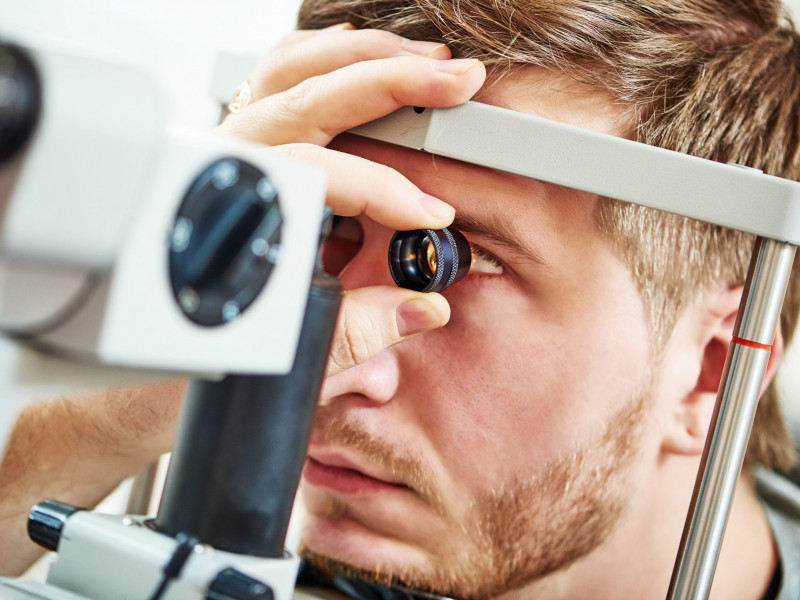Following many years of experience working in hospital glaucoma and medical clinics. Dr Gurney has obtained nationally recognised diplomas in ocular therapeutics DipTp(IP) and glaucoma Dip Glauc.
Dr Gurney is the only optometrist with this level of qualification in the whole of Kent. This means that we are in a unique position within our local community in that we are able to diagnose and manage ocular hypertension, suspect glaucoma, and patients with a diagnosis of glaucoma. Independent prescribing status means that we can also prescribe any medications required for the treatment of any eye disease.
For those that want ultimate reassurance that all is well with their visual system and ocular health Dr Gurney can undertake this hospital standard consultant ophthalmic examination.

Corneal Pachymetry
A pachymetry test is a simple, quick, painless test to measure the thickness of your cornea. With this measurement, your doctor can better understand your IOP reading, and develop a treatment plan that is right for your condition. Corneal thickness is important because it can mask an accurate reading of eye pressure, causing doctors to treat you for a condition that may not really exist or to treat you unnecessarily when are normal. Actual IOP may be underestimated in patients with thinner CCT, and overestimated in patients with thicker CCT.

Gonioscopy
If required Dr Gurney will perform this advanced procedure to evaluate the internal drainage system of the eye, also referred to as the anterior chamber angle. The “angle” is where the cornea and the iris meet. This is the location where fluid inside the eye (aqueous humour) drains out of the eye and into the venous system. Under normal circumstances, the angle cannot be seen on exam. After numbing the eye with drops, a special contact lens is placed directly on the eye and a beam of light is used to illuminate the angle. While the eyelids may feel the presence of the lens, there is typically no pain associated with this exam. Examination of both eyes typically takes a few minutes. This technique can help the eye doctor differentiate whether the patient has Ocular Hypertension, primary (open- or angle-closure) or secondary (pigmentary, pseudo exfoliation, or traumatic) glaucoma, this information is vital to determine how best to manage the patient and decide what steps we should take to lower the pressure.

Pupil Dilation
Dr Gurney will use some eye drops to dilate your pupils, this will mean that your vision will be a little blurred for 4-6 hours after the examination, so it is advisable to bring someone with you if you need to drive home after the appointment. Pupil dilation is very important at revealing the status of your optic nerve and retina, and is critical to preventing and treating eye conditions that could potentially lead to vision loss.
